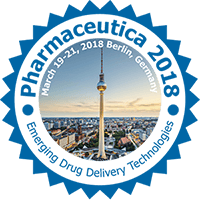
Mikhail Durymanov
South Dakota State University, USA
Title: Nanoparticles for hepatoprotection against anticancer drugs
Biography
Biography: Mikhail Durymanov
Abstract
During the last 50 years, cytotoxic chemotherapy has remained the major strategy against cancer. At the same time, hepatotoxicity of anticancer drugs is one of the major concerns associated with chemotherapy. Current liver chemoprotective agents are designed for systemic non-targeted applications. Besides liver, these medications also accumulate within the tumor and may potentially exert their chemoprotective effect on tumor tissues to the detriment of chemotherapeutic efficacy. In this study, we developed a new strategy for targeted delivery of protective drugs to the liver enabling higher anticancer drug doses without detrimentally impacting efficacy. Chemoprotective drug sulforaphane (SFN), which upregulates phase 2 and antioxidant defense enzymes, was encapsulated with loading efficiency of 14% (w/w) into biodegradable nanoparticles made of porous materials known as “metal-organic frameworks” (MOFs). After 24 h of incubation, SFN-MOF nanoparticles caused 2-fold increase of glutathione-S-transferase (GST) activity and enhanced expression of this phase 2 enzyme in mouse hepatocytes AML12. Moreover, SFN-MOF nanoparticles did not show any cytotoxicity and prevented caspase activation along with hepatocyte death after exposure to DOX. Treatment of tumor bearing mice with SFN-MOF nanoparticles led to significant GST upregulation in the liver, but not in the tumor; whereas use of free SFN enhances its expression in both tissues. Moreover, application of SFN-MOF nanoparticles prevented DOX-induced liver toxicity, and did not reduce therapeutic outcome. Thus, SFN-MOF nanoparticles provided preventive protection of the liver during chemotherapy and did not increase resistance of tumors to anticancer drug.

